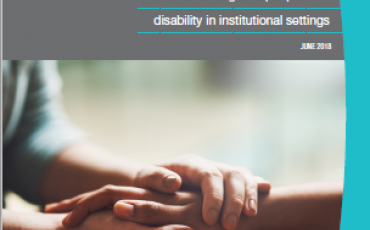The rights of people in health and disability care during COVID-19

Also available:
Easy Read version of the Guidelines
1. Introduction
Policy responses to the SARS-CoV-2 virus and associated disease, COVID-19, including isolation and social distancing measures, may in certain circumstances have a greater impact on some people with disability, particularly those who rely on carers and other support people, and those who live or work in high-risk environments.
Treatment protocols for medical practitioners, health and disability support workers may, in certain circumstances, also have the potential to discriminate against people with disability. This occurs when unwarranted assumptions are made about people with disability or when their needs and preferences are not adequately taken into account. This discrimination may be unintentional and undertaken unknowingly.
In some cases, it may be necessary to treat people with disability differently in order to ensure ‘disability neutrality’.[i] That is, to ensure that they enjoy their human rights, including the right to health, on an equal basis with other people. This is consistent with the concept of ‘substantive equality’. It requires rules to be questioned, differences acknowledged, and reasonable accommodations made rather than ignored, so as to enable equality of opportunity and not just merely equality of treatment.
For employers wanting to provide meaningful job opportunities to people with disability, and for people with disability navigating pathways to employment explore the IncludeAbility project page.
[i] Samuel Bagenstos, ‘May Hospitals Withhold Ventilators from COVID-19 Patients with Pre-Existing Disabilities? Notes on the Law and Ethics of Disability-Based Medical Rationing’ (2020/2021) 130 Yale Law Journal Forum 1.



